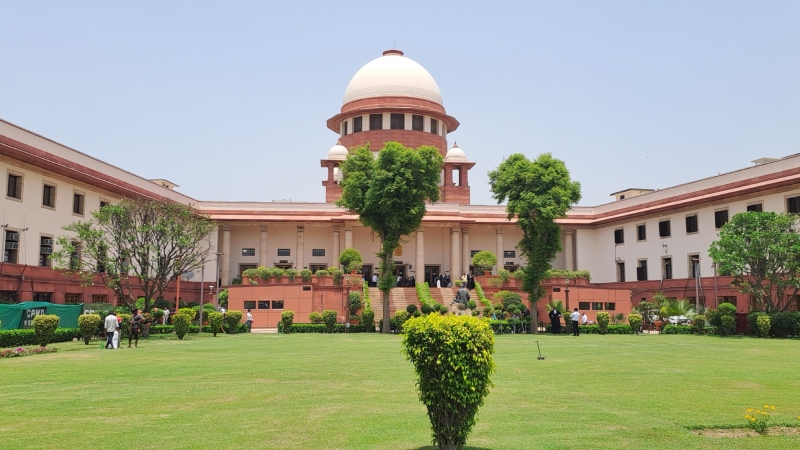
Electoral Bonds were introduced by BJP government in 2018
Electoral bonds are violative of right to information: Chandrachud
Not all political contributions are made with the intent to alter public policy: Chandrachud
The Supreme Court of India has struck down the electoral bonds scheme which was introduced by the Bharatiya Janata Party (BJP) government in 2018. “Courts have held citizens have the right to hold the government to account. Crucial aspect of the expansion of the right to information is that it is not confined to state affairs but also includes information necessary for participatory democracy. The Supreme Court holds that anonymous electoral bonds are violative of right to information and Article 19(1)(a). Financial contributions to political parties are made for support to political parties, or contribution may be a way of quid pro quo,” Chief Justice of India DY Chandrachud said.
The 5 member bench comprising Justices DY Chandrachud, Sanjiv Khanna, BR Gavai, JB Pardiwala and Manoj Misra arrived at a unanimous verdict although with a difference in reasoning. They did not accept arguments made along the lines of curbing black money and right to privacy of political parties. “The Electoral bonds scheme is not the only scheme to curb black money. Infringement of the right to information is not justified by the purpose of curbing black money. There are other alternatives. Not all political contributions are made with the intent to alter public policy. Students, daily wagers etc also contribute. To not grant an umbrella of privacy to political contributions only because some contributions are made for other purposes is not impermissible. Right to privacy of political affiliation does not extend to contributions made to influence public policy and applies only to contributions below the threshold,” Chandrachud added.

Electoral Bonds were introduced by BJP government in 2018
Electoral bonds are violative of right to information: Chandrachud
Not all political contributions are made with the intent to alter public policy: Chandrachud
The Supreme Court of India has struck down the electoral bonds scheme which was introduced by the Bharatiya Janata Party (BJP) government in 2018. “Courts have held citizens have the right to hold the government to account. Crucial aspect of the expansion of the right to information is that it is not confined to state affairs but also includes information necessary for participatory democracy. The Supreme Court holds that anonymous electoral bonds are violative of right to information and Article 19(1)(a). Financial contributions to political parties are made for support to political parties, or contribution may be a way of quid pro quo,” Chief Justice of India DY Chandrachud said.
The 5 member bench comprising Justices DY Chandrachud, Sanjiv Khanna, BR Gavai, JB Pardiwala and Manoj Misra arrived at a unanimous verdict although with a difference in reasoning. They did not accept arguments made along the lines of curbing black money and right to privacy of political parties. “The Electoral bonds scheme is not the only scheme to curb black money. Infringement of the right to information is not justified by the purpose of curbing black money. There are other alternatives. Not all political contributions are made with the intent to alter public policy. Students, daily wagers etc also contribute. To not grant an umbrella of privacy to political contributions only because some contributions are made for other purposes is not impermissible. Right to privacy of political affiliation does not extend to contributions made to influence public policy and applies only to contributions below the threshold,” Chandrachud added.
